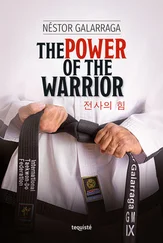It’s strange that for a White House that writes screenplays, the words of Osama bin Laden appear so uninteresting. Whenever bin Laden speaks, no one bothers to read through his speech. The questions are always: Was it him? Is he alive? Where is he? Never: What did he say? There are real perils in this. Bin Laden, who hated Saddam – he told me this himself, in person – made a call to his followers to fight alongside an Iraqi force which included Saddam’s Iraqi Baathist ‘Socialists’. This was the moment when Iraq’s future guerrilla army fused with the future suicide bombers, the message that would create the detonation that would engulf the West in Iraq. And we didn’t even notice. The US ‘experts’ waffled about whether bin Laden was alive – not what he said. For once, Bush got it right – but he was too late. Always, as they say, read the text.
Take George Tenet, the CIA Ernest Borgnine lookalike who sat behind Colin Powell at the UN when the US secretary of state was uttering all those lies about weapons of mass destruction in February of 2003. It now turns out that George is mightily upset with the White House. He didn’t refer to evidence of WMD as a ‘slam dunk’, he says. He was talking about the ability of the US government to persuade the American people to go to war based on these lies. In other words, he wasn’t lying to the American president. He was only lying to the American people.
I was struck by all this last month when I came across one of Tony Blair’s lies in my local Beirut paper. Sandwiched beneath a headline which read ‘Saudi reforms lose momentum’ – surely one of the more extraordinarily unnecessary stories in the Arab press – it quoted our dear prime minister as saying that he was very angry that a review committee had prevented him from deporting two Algerians because their government represented a ‘different political system’. The ‘foregrounded’ element, of course, is the word ‘different’. This is the word that contains the lie. For the reason the committee declined to return these men to their country was not – as Blair well knew – because Algeria possesses a ‘different’ political system but because the Algerian ‘system’ allows it to torture its prisoners. I have myself interviewed Algerian policemen and women who have become perverted by their witness of torture: one policewoman told me how she now loves horror films because they remind her of the repulsive torture she had to watch at the Châteauneuf police station in Algiers – where prisoners had water pumped into their anuses until they died. I still remember the spiteful and abusive letter that the Algerian ambassador to London wrote to The Independent , sneering at Saida Kheroui, whose foot was broken under torture. She was a ‘terrorist’, this man announced. This is the ‘different’ political system that Blair was referring to. Ms Kheroui, by the way, never emerged from prison. She was murdered by her torturers.
Blair knows that the Algerian security forces rape women to death. So how does he dare lie about the ‘different’ political system which allows police officers to rape women? We Europeans now make a habit of lying about this. Take the Belgian government. It deported Bouasria Ben Othman to Algeria on 15 July 1996 on the grounds that he would not be in danger if he was returned to his country. He died in police custody at Moustaganem. A ‘different’ political system indeed.
And now I have before me Blair’s repulsive ‘goodbye’ speech to the British people, uttered at Sedgefield. Putting the country first didn’t mean ‘doing the right thing according to conventional wisdom’ (Chomsky foregrounded element: conventional) or the ‘prevailing consensus’ (Chomsky foregrounded element: prevailing). It meant ‘what you genuinely believe to be right’ (Chomsky foregrounded element: genuinely). Lord Blair of Kut al-Amara wanted to stand ‘shoulder to shoulder’ with Britain’s oldest ally, which he assumed to be the United States. (It is actually Portugal, but no matter.) ‘I did so out of belief,’ he told us. Foregrounded element: belief. Am I alone in being repulsed by this? ‘Politics may be the art of the possible [foregrounded element: may] but, at least in life, give the impossible a go.’ What does this mean? Is Blair adopting sainthood as a means to an end? ‘Hand on heart, I did what I thought was right.’ Excuse me? Is that Blair’s message to the families of all those dead soldiers – and to the families of all those thousands of dead Iraqis? It has been an ‘honour’ to ‘serve’ Britain, this man tells us. What gall.
Yes, I must acknowledge Northern Ireland. If only Blair had kept to this achievement. If only he had accepted that his role was to end 800 years of the Anglo–Irish conflict. But no. He wanted to be our Saviour – and he allowed George Bush to do such things as Oliver Cromwell would find quite normal. Torture. Murder. Rape.
My dad used to call people like Blair a ‘twerp’ which, I think, meant a pregnant earwig. But Blair is not a twerp. I very much fear he is a vicious little man. And I can only recall Cromwell’s statement to the Rump Parliament in 1653, repeated – with such wisdom – by Leo Amery to Chamberlain in 1940: ‘You have sat too long here for any good you have been doing. Depart, I say, and let us have done with you. In the name of God, go.’
The Independent , 2 July 2005 and 19 May 2007
After a decade in power, Tony Blair resigned as British prime minister on 27 June 2007 to become ‘peace’ envoy to the Middle East, an irony not lost on Arabs who blame both Blair and George W. Bush for the disastrous invasion of Iraq in 2003 and the greatest suffering inflicted on Muslims since Saddam Hussein began his own Western-supported eight-year war against Iran in 1980 .
I once received an invitation to lecture at ‘The University of Excellence’. I forget where this particular academy was located – Jordan, I think – but I recall very clearly that the suggested subject of my talk was as incomprehensible to me as it would, no doubt, have been to any audience. Invitation rejected. Only this week I received another request, this time to join ‘ethics practitioners’ to ‘share evidence-based practices on dealing with current ethical practices’ around the world. What on earth does this mean? Why do people write like this?
The word ‘excellence’, of course, has long ago been devalued by the corporate world – its favourite expression has long been ‘Quality and Excellence’, invariably accompanied by a ‘mission statement’, that claim to self-importance dreamed up by Robin Cook when foreign secretary (swiftly ditched when he decided to go on selling jets to Indonesia) and thereafter by every export company and amateur newspaper in the world.
There is something repulsive about this vocabulary, an aggressive language of superiority in which ‘key players’ can ‘interact’ with each other, can ‘impact’ society, ‘outsource’ their business or ‘downsize’ the number of their employees. They need ‘feedback’ and ‘input’. They ‘think outside the box’ or ‘push the envelope’. They have a ‘work space’, not a desk. They need ‘personal space’ – they need to be left alone – and sometimes they need ‘time and space’, a commodity much in demand when marriages are failing. These lies and obfuscations are infuriating. ‘Downsizing’ employees means firing them; ‘outsourcing’ means hiring someone else to do your dirty work. ‘Feedback’ means ‘response’, ‘input’ means ‘advice’. ‘Thinking outside the box’ means, does it not, to be ‘imaginative’?
Being a ‘key player’ is a form of self-aggrandisement – which is why I never agree to be a ‘key speaker’, especially if this means participation in a ‘workshop’. To me a workshop means what it says. When I was at school, the workshop was a carpentry shop wherein generations of teachers vainly tried to teach Fisk how to make a wooden chair or table that did not collapse the moment it was completed. But today, a ‘workshop’ – though we mustn’t say so – is a group of tiresome academics yakking in the secret language of anthropology or talking about ‘cultural sensitivity’ or ‘core issues’ or ‘tropes’. Presumably these are the same folk who invented the UN’s own humanitarian- speak. Of the latter, my favourite is the label awarded to any desperate refugee who is prepared (for a pittance) to persuade their fellow victims to abide by the UN’s wishes – to abandon their tents and return to their dangerous, war-ravaged homes. These luckless advisers are referred to by the UN as ‘social animators’.
Читать дальше












